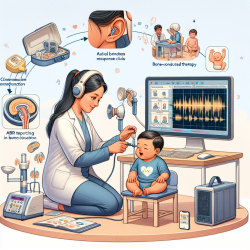Introduction
As a speech-language pathologist, you understand the importance of evidence-based practices in creating effective interventions for children. Recent research has highlighted the impact of self-compassion on parental burnout and child outcomes, providing valuable insights for practitioners like you. By incorporating self-compassion into your practice, you can enhance your ability to support both children and their families.
Understanding the Research
The study "Structural Inequities in Self-compassion and Parental Burnout" examined the relationship between self-compassion, parental burnout, and child mental health during the COVID-19 pandemic. It found that parents with higher levels of self-compassion experienced less burnout and reported better mental health outcomes for themselves and their children. This research underscores the potential of self-compassion as a target for interventions aimed at reducing parental burnout and improving child outcomes.
Key Findings
- Parents with higher self-compassion experienced less burnout.
- Self-compassion was associated with better mental health outcomes for both parents and children.
- Black and Hispanic parents demonstrated higher levels of self-compassion compared to their white counterparts.
- Interventions targeting self-compassion should not detract from addressing structural inequities that contribute to parental stress.
Implications for Practice
As a practitioner, you can leverage these findings to enhance your practice in several ways:
- Promote Self-Compassion: Encourage parents to cultivate self-compassion as a coping strategy. This can be integrated into parent training sessions, workshops, or individual consultations.
- Collaborate with Parents: Work with parents to identify stressors and develop personalized strategies that incorporate self-compassion. This collaborative approach can empower parents and improve their resilience.
- Address Structural Inequities: Advocate for systemic changes that reduce parental stressors, particularly for marginalized communities. This can involve collaborating with schools, policymakers, and community organizations.
Encouraging Further Research
While the study provides valuable insights, further research is needed to explore the long-term effects of self-compassion interventions on parental burnout and child outcomes. As a practitioner, you can contribute to this body of knowledge by conducting your own research or collaborating with academic institutions.
Conclusion
Incorporating self-compassion into your practice can have a profound impact on the families you serve. By promoting self-compassion and addressing structural inequities, you can help reduce parental burnout and improve outcomes for children. To read the original research paper, please follow this link: Structural Inequities in Self-compassion and Parental Burnout.










